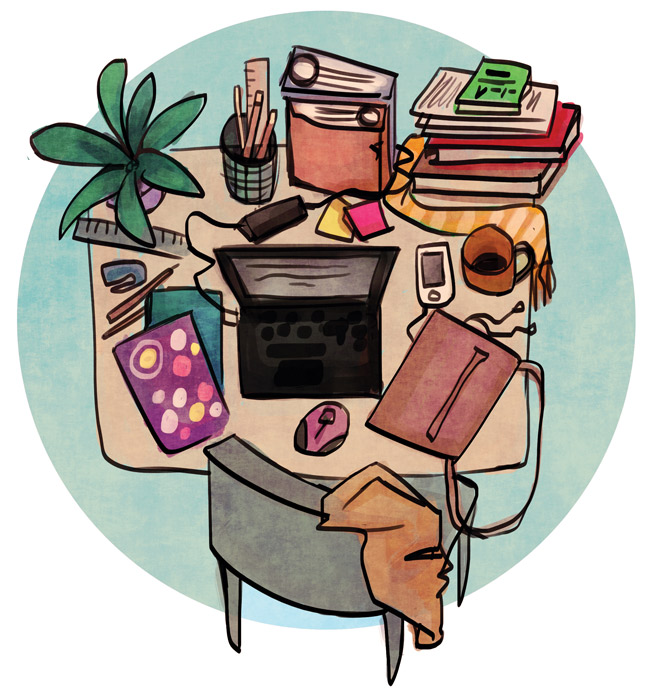When I started studying at McGill, I could not have anticipated the amount of digital clutter I would amass in my time here. My laptop was my go-to device; it served as my notebook, my planner, and my coursepack all at once. But by the end of my second semester, I was hardly functional. If I needed to pull up a document, I would have to wade through multiple files and folders before being able to access it.
My productivity declined because my mind, like my digital space, was cluttered. While we are quick to declutter our workspaces and our rooms, for today’s student, it’s equally important to tackle digital clutter. The following tips may help you develop a new attitude toward your digital space as you prepare for your new summer job or the coming school year.
1. Identify what matters
The most important part of tackling digital clutter is to know what is and isn’t clutter. Do you really need seven versions of the CV you made in your senior year of high school? Probably not. On the other hand, it is probably crucial to archive your term papers. A good rule of thumb is to ask yourself, “When was the last time I needed this exact file?” If you can’t come up with a clear answer, scrap the document.
2. Perfect your organizational system
A thorough organizational system will keep your digital surroundings tidy. You can arrange your schoolwork by week or organize it by course—or both. For non-school related files, simple categories should do the trick: make a folder for career-related files and organize your media into ‘music,’ ‘movies,’ ‘TV shows,’ and so on. The idea is to be aware about the reason each file occupies the space it does. Consider things such as, ‘Can this file be grouped with similar files? Is there a sub-category in my system to which it better corresponds?’ Measure this by considering how you would access the file if someone asked you to pull it up. If you intuitively think of the current location it is in, then you have found the right place for the file. If you are able to imagine another place, move the document.
A quick way to ensure that your system remains organized throughout the semester is to set a personal limit on the number of folders or files allowed in a certain location and to use the limit as an incentive to keep things organized. Remember, your system is yours alone, so don’t be afraid to tweak these suggestions until you find what works most effectively for you.
3. Develop a cleaning routine
Rachel Aust, renowned lifestyle vlogger, recommends having daily, weekly, and monthly objectives for decluttering in order to successfully break down cleaning into more manageable portions. Try it out by assigning two minutes every night to remove unimportant files from your desktop. Every week, clear out your Downloads folder and delete irrelevant emails. At the end of the month, take fifteen minutes to sort files and transfer them. By developing a clear routine, you will not only be able to tackle clutter efficiently, but also integrate decluttering into your daily habits.
4. Use cloud storage services
Minimalism is about identifying and keeping things that make you happy or are important to you and removing those that aren’t. You can upload files that aren’t of immediate importance to storage drives such as iCloud, Google Drive, or Dropbox, and subsequently delete them from your computer. Unlike external hard drives, most of these services are free up to 15 GB of storage. An additional benefit is that these services tend to have their own smartphone apps, making files in cloud storage accessible from your phone or your tablet.
5. Don’t forget about your phone or tablet
The Photos folder on your mobile device can rapidly fill up with photos, memes that your friends sent you, or screenshots of conversations. Keep this under control by deleting images from your photo collection once or twice a week. This way, you can curate the memories that matter and free up storage on your phone.
Apps are also important. Not only does an excessive number of apps slow down your device, but reducing the number of apps you have will make your user experience more purposeful. See if you can sort apps that you use for similar purposes—such as social media and photography—into folders to help you navigate your device with ease.






